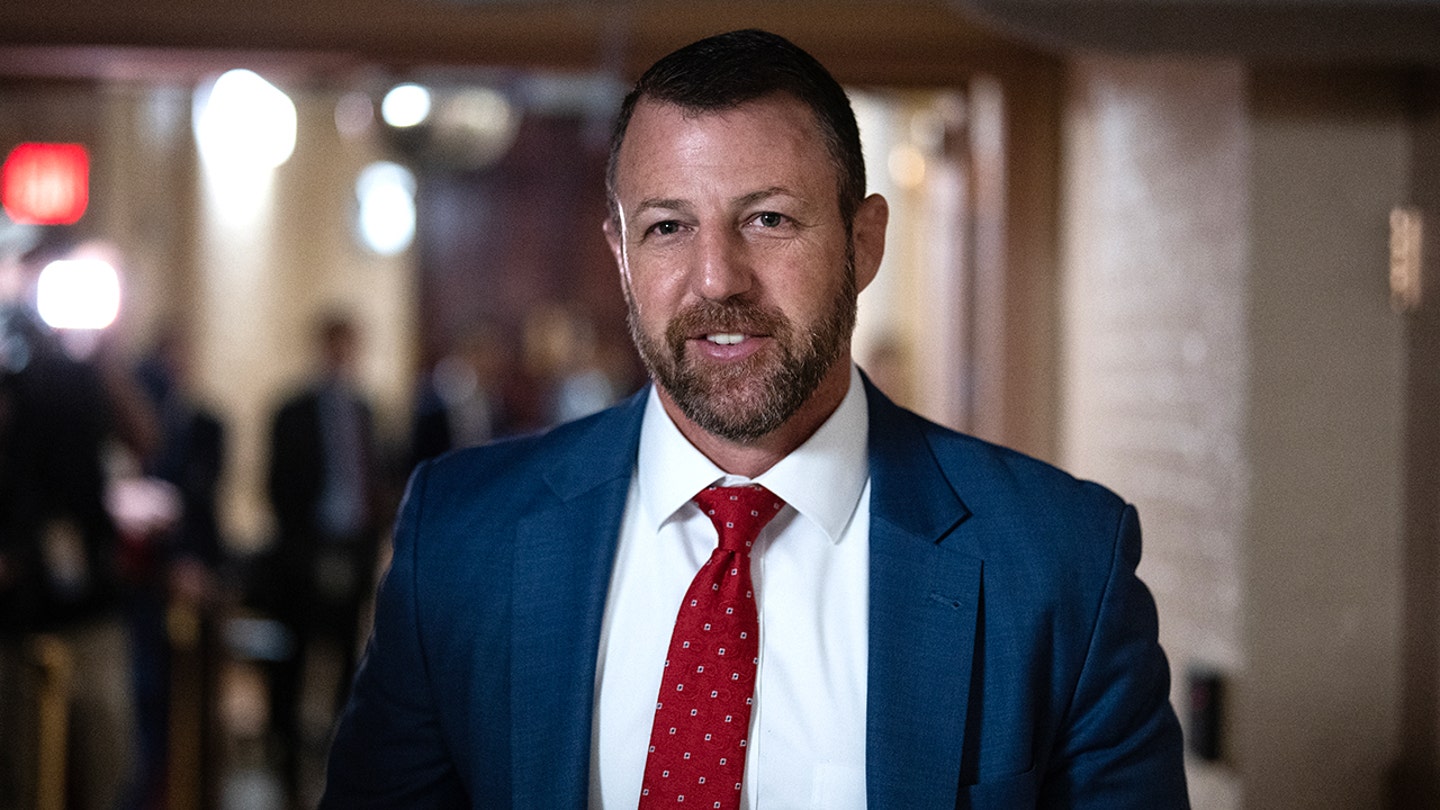
Federal courts go old school to paper filings after hack to key system
Entities mentioned:
- Federal Courts: Security, Duty, Professional pride
- Stanley Bastian: Security, Duty, Professional pride
- Cecilia Altonaga: Security, Duty, Professional pride
- Mark Davis: Security, Duty, Professional pride
- George Russell III: Security, Duty, Professional pride
- Administrative Office of the US Courts: Security, Duty, Professional pride
- Kremlin: Power, Control, Influence
- President Donald Trump: Pride, Competitive spirit, Power
Article Assessment:
Credibility Score: 75/100
Bias Rating: 45/100 (Center)
Sentiment Score: 35/100
Authoritarianism Risk: 25/100 (Generally Democratic)
Bias Analysis:
The article presents a balanced view of the situation, quoting multiple sources and providing context. It includes a brief mention of Trump's response without overtly favoring any political stance.
Key metric: National Cybersecurity Preparedness
As a social scientist, I analyze that this article highlights a significant vulnerability in the U.S. federal court system's cybersecurity infrastructure. The shift to paper-based filings for sensitive documents across multiple federal districts indicates a serious breach that potentially compromises national security and the integrity of the judicial system. This reactive measure, while necessary, exposes the outdated nature of the court's digital systems and the urgent need for modernization. The alleged involvement of a foreign government (possibly Russia) in the cyber attack further emphasizes the geopolitical implications of this security lapse. The varied responses from different district courts also reveal a lack of standardized cybersecurity protocols across the federal judiciary, which could lead to inconsistencies in information protection. This incident may erode public trust in the government's ability to safeguard sensitive information and potentially impact the efficiency of court proceedings.

Congress Passes Blank Bill For Trump To Write Whatever Law He Wants
Entities mentioned:
- Congress: Power, Loyalty, Obligation
- President Donald Trump: Power, Control, Ambition
- House Speaker Mike Johnson: Loyalty, Power, Influence
- Americans: Security, Unity, Control
Article Assessment:
Credibility Score: 20/100
Bias Rating: 30/100 (Lean Left)
Sentiment Score: 20/100
Authoritarianism Risk: 95/100 (Totalitarian Risk)
Bias Analysis:
The article leans left, critiquing perceived right-wing tendencies towards authoritarianism. It uses satire to exaggerate and mock the idea of giving a Republican president unlimited power, indicating a liberal perspective.
Key metric: Checks and Balances Index
As a social scientist, I analyze that this satirical article highlights extreme concerns about the erosion of checks and balances in the U.S. government. The fictional scenario of Congress passing a blank bill for the president to write any law undermines fundamental democratic principles and separation of powers. This exaggerated portrayal reflects anxieties about executive overreach and legislative abdication of responsibility. The impact on the Checks and Balances Index would be catastrophic, effectively reducing it to zero, as it depicts a complete surrender of congressional authority to the executive branch. This scenario, while satirical, serves as a stark warning about the potential consequences of unchecked executive power and the importance of maintaining strong democratic institutions.

GOP Sen. Markwayne Mullin, former MMA fighter, skips seat belts in DC over carjacking fears
Entities mentioned:
- Sen. Markwayne Mullin: Self-preservation, Security, Wariness
- Fox News Channel: Influence, Recognition, Competitive spirit
- Brian Kilmeade: Professional pride, Influence, Curiosity
- President Donald Trump: Power, Control, Influence
Article Assessment:
Credibility Score: 65/100
Bias Rating: 70/100 (Lean Right)
Sentiment Score: 35/100
Authoritarianism Risk: 55/100 (Mixed/Neutral)
Bias Analysis:
The article leans right, evidenced by its focus on a Republican senator and positive framing of Trump's actions. It presents the crime narrative without counterbalancing statistics or alternative viewpoints, potentially exaggerating the issue.
Key metric: Public Safety and Crime Rate
As a social scientist, I analyze that this article highlights a perceived threat to public safety in Washington D.C., particularly regarding carjacking. Sen. Mullin's decision to forgo seatbelt use due to carjacking fears indicates a significant concern about crime rates in the capital. This perception, whether accurate or exaggerated, can impact public trust in local law enforcement and government effectiveness. The mention of Trump's intention to 'take our capital back' further emphasizes the narrative of a city struggling with crime issues. This focus on crime and safety concerns in D.C. could influence public opinion, potentially affecting policy decisions, law enforcement strategies, and even migration patterns in and out of the city.

Appeals court allows Trump to continue ending foreign aid grants
Entities mentioned:
- President Donald Trump: Power, Control, Influence
- US DC Circuit Court of Appeals: Duty, Justice, Obligation
- Congress: Power, Control, Obligation
- State Department: Duty, Obligation, Influence
- USAID: Duty, Obligation, Professional pride
- Judge Karen Henderson: Duty, Justice, Professional pride
- Lauren Bateman: Justice, Moral outrage, Duty
- Judge Greg Katsas: Duty, Loyalty, Professional pride
- Judge Florence Pan: Justice, Moral outrage, Duty
- Steve Vladeck: Justice, Professional pride, Moral outrage
Article Assessment:
Credibility Score: 75/100
Bias Rating: 55/100 (Center)
Sentiment Score: 35/100
Authoritarianism Risk: 65/100 (Authoritarian Tendencies)
Bias Analysis:
The article presents multiple viewpoints, including the court's decision, dissenting opinion, and expert commentary. While it leans slightly towards criticism of the ruling, it provides factual information about the decision and its potential impacts.
Key metric: Separation of Powers Index
As a social scientist, I analyze that this court ruling significantly impacts the balance of power between the executive and legislative branches of the US government. By limiting the ability to challenge presidential budget decisions to only the Comptroller General, the court has potentially increased executive power at the expense of legislative oversight. This could lead to a shift in the Separation of Powers Index, potentially weakening checks and balances. The decision may also have far-reaching consequences for foreign aid distribution, potentially affecting US soft power and global health initiatives. The dissenting opinion and expert commentary suggest that this ruling could be seen as a departure from established constitutional norms, which may lead to further legal challenges or attempts to address this through legislation.

Federal judge questions if Trump’s deployment of the National Guard in the Los Angeles area is lawful
Entities mentioned:
- Judge Charles Breyer: Justice, Duty, Wariness
- President Donald Trump: Power, Control, Security
- Gov. Gavin Newsom: Justice, Duty, Self-preservation
- Justice Department: Control, Duty, Security
- California National Guard: Duty, Obligation, Security
Article Assessment:
Credibility Score: 75/100
Bias Rating: 45/100 (Center)
Sentiment Score: 35/100
Authoritarianism Risk: 25/100 (Generally Democratic)
Bias Analysis:
The article presents multiple viewpoints, including those of the judge, the Justice Department, and California's representatives. While it gives slightly more space to the judge's skeptical questioning, it still includes the government's arguments, maintaining a relatively balanced perspective.
Key metric: Rule of Law Index
As a social scientist, I analyze that this case highlights significant tensions between federal and state authority, as well as concerns about the potential misuse of military forces for domestic law enforcement. The judge's skepticism about the continued deployment of federalized National Guard troops raises critical questions about the limits of presidential power and the interpretation of the Posse Comitatus Act. This legal challenge could have far-reaching implications for the balance of power between the executive branch and states, potentially affecting the Rule of Law Index by setting precedents on the use of military forces in civilian contexts. The outcome of this case may influence future interpretations of executive authority in deploying federal forces domestically, which could impact democratic norms and civil liberties.

Crowd in DC outraged by federal law enforcement presence as cars stopped on busy street
Entities mentioned:
- Washington, DC police: Duty, Control, Security
- Federal agents: Control, Security, Duty
- President Donald Trump: Power, Control, Security
- Local community members: Moral outrage, Indignation, Freedom
- National Guard: Duty, Security, Control
- White House official: Loyalty, Duty, Control
- Homeland Security Investigations: Security, Control, Duty
- Enforcement and Removal Operations (ICE): Control, Security, Duty
- Mara Lasko (local resident): Moral outrage, Indignation, Freedom
- Mayor Muriel Bowser: Security, Unity, Duty
Article Assessment:
Credibility Score: 75/100
Bias Rating: 45/100 (Center)
Sentiment Score: 35/100
Authoritarianism Risk: 65/100 (Authoritarian Tendencies)
Bias Analysis:
The article presents multiple perspectives, including those of protesters, local residents, and officials. While it leans slightly towards portraying community concerns, it also includes statements from White House and law enforcement sources.
Key metric: Civil Liberties and Rule of Law
As a social scientist, I analyze that this article highlights a significant tension between federal law enforcement actions and local community reactions in Washington, DC. The increased presence of federal agents and checkpoints in residential areas represents a potential infringement on civil liberties and local autonomy. This situation risks eroding trust between law enforcement and communities, potentially leading to increased social unrest. The federal takeover of local policing, justified by claims of high crime rates (which the article notes have actually decreased), raises concerns about the balance of power between federal and local authorities. This could have long-term implications for democratic governance and the rule of law in the United States.

DC violence has grown far more deadly, despite Dems claiming 30-year low
Entities mentioned:
- John Jay adjunct lecturer Jillian Snider: Professional pride, Duty, Righteousness
- Council on Criminal Justice: Justice, Duty, Curiosity
- President Donald Trump: Power, Control, Security
- Democratic lawmakers: Indignation, Loyalty, Self-preservation
- House Minority Leader Hakeem Jeffries: Indignation, Loyalty, Power
- Hillary Clinton: Indignation, Influence, Loyalty
- Metropolitan Police Department: Duty, Security, Professional pride
- Council on Criminal Justice senior researcher Ernesto Lopez: Curiosity, Professional pride, Duty
- Council on Criminal Justice President and CEO Adam Gelb: Professional pride, Duty, Influence
Article Assessment:
Credibility Score: 75/100
Bias Rating: 55/100 (Center)
Sentiment Score: 35/100
Authoritarianism Risk: 55/100 (Mixed/Neutral)
Bias Analysis:
The article presents multiple viewpoints and cites credible sources, including academic research and official crime statistics. However, it gives more prominence to perspectives critical of Democratic claims, suggesting a slight center-right lean.
Key metric: Violent Crime Lethality Rate
As a social scientist, I analyze that this article presents a complex picture of crime trends in Washington D.C., highlighting a significant increase in the lethality of violent crimes despite an overall decrease in violent crime rates. The data shows a 341% increase in lethality from 2012 to 2024, with 57 homicides per 1,000 serious violent crimes in 2024 compared to 13 in 2012. This trend contradicts some political narratives that crime is at a 30-year low, illustrating the importance of nuanced analysis in crime statistics. The article suggests multiple factors contributing to increased lethality, including gang activity, firearms availability, and potentially slower emergency response times. The conflict between federal intervention and local policing autonomy is also highlighted, raising questions about effective crime management strategies. This situation underscores the need for comprehensive approaches to public safety that address both crime frequency and severity.

2.4 million people expected to lose food stamps after Trump agenda law broadened work requirements, CBO says
Entities mentioned:
- Republican lawmakers: Righteousness, Fiscal responsibility, Control
- President Donald Trump: Power, Legacy, Influence
- Congressional Budget Office: Duty, Professional pride, Obligation
- Food Research & Action Center: Justice, Moral outrage, Advocacy
- Justin Wolfers: Professional pride, Influence, Obligation
Article Assessment:
Credibility Score: 75/100
Bias Rating: 40/100 (Lean Left)
Sentiment Score: 30/100
Authoritarianism Risk: 45/100 (Mixed/Neutral)
Bias Analysis:
The article leans slightly left, emphasizing the negative impacts on low-income groups and quoting left-leaning sources. However, it also includes factual data from the CBO and presents some counterarguments, maintaining a degree of balance.
Key metric: Poverty Rate
As a social scientist, I analyze that this article highlights significant changes to social welfare programs, particularly SNAP (food stamps) and Medicaid, due to new work requirements. These changes are projected to reduce the number of beneficiaries and potentially increase poverty and food insecurity among vulnerable populations. The CBO's analysis suggests that while the law aims to promote work, it may disproportionately impact low-income families, potentially exacerbating income inequality. The projected increase in uninsured Americans and reduction in food assistance could lead to poorer health outcomes and increased economic stress for affected households, potentially increasing the poverty rate.

White House lands on Trump-Putin summit location as officials race to prepare for historic Alaska meeting
Entities mentioned:
- President Donald Trump: Ambition, Power, Legacy
- Vladimir Putin: Power, Influence, Control
- White House officials: Duty, Professional pride, Security
- Secretary of State Marco Rubio: Duty, Influence, Professional pride
- John Bolton: Wariness, Criticism, Influence
- President Joe Biden: Duty, Security, Influence
- Steve Witkoff: Loyalty, Influence, Duty
- Volodymyr Zelensky: Security, Influence, Self-preservation
Article Assessment:
Credibility Score: 70/100
Bias Rating: 55/100 (Center)
Sentiment Score: 45/100
Authoritarianism Risk: 35/100 (Generally Democratic)
Bias Analysis:
The article presents multiple perspectives, including critics of the summit. However, it leans slightly towards emphasizing concerns and potential risks, while still maintaining a relatively balanced approach.
Key metric: International Relations and Diplomacy
As a social scientist, I analyze that this summit between Trump and Putin represents a significant shift in US-Russia relations, potentially impacting global geopolitics. The rushed nature of the preparations and the choice of location in Alaska suggest an unconventional approach to diplomacy. The one-on-one format raises concerns about transparency and accountability. The exclusion of Ukraine's President Zelensky from direct participation could affect the balance of power discussions regarding the ongoing conflict. This meeting may influence international perceptions of US foreign policy and its stance towards Russia, potentially altering alliances and diplomatic strategies globally.

On social media, the Department of Homeland Security appeals to nostalgia — with motifs of White identity
Entities mentioned:
- Department of Homeland Security: Security, Control, Influence
- Immigration and Customs Enforcement: Control, Duty, Security
- President Donald Trump: Power, Control, Influence
- Nicholas J. Cull: Professional pride, Curiosity, Duty
- Tricia McLaughlin: Loyalty, Duty, Self-preservation
- Anat Shenker-Osorio: Righteousness, Professional pride, Moral outrage
- Ian Haney López: Professional pride, Moral outrage, Justice
- Patrick Fontes: Professional pride, Moral outrage, Duty
- Kristy Dalton: Professional pride, Curiosity, Duty
- Morgan Weistling: Self-preservation, Indignation, Justice
- Thomas Kinkade Foundation: Legacy, Justice, Moral outrage
- Black Rebel Motorcycle Club: Self-preservation, Indignation, Justice
Article Assessment:
Credibility Score: 75/100
Bias Rating: 35/100 (Lean Left)
Sentiment Score: 25/100
Authoritarianism Risk: 65/100 (Authoritarian Tendencies)
Bias Analysis:
The article leans left, presenting a critical view of DHS's social media strategy with quotes primarily from experts who express concern. While it includes DHS statements, the overall framing emphasizes potential negative implications of the agency's approach.
Key metric: Social Cohesion
As a social scientist, I analyze that this article highlights a concerning shift in government communication strategy that could significantly impact social cohesion in the United States. The Department of Homeland Security's use of nostalgic, nationalist, and potentially xenophobic imagery in its social media recruitment efforts appears to be tapping into divisive cultural narratives. This approach, while potentially effective for recruitment, risks further polarizing an already divided populace. The use of historical imagery and religious symbolism, coupled with language that echoes white nationalist rhetoric, could exacerbate existing tensions around immigration and national identity. This strategy may attract certain demographics to DHS roles but could alienate others and undermine trust in government institutions among minority communities. The controversy surrounding the unauthorized use of artworks also raises questions about the agency's respect for intellectual property and its overall ethical standards in public communication.